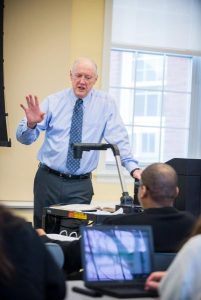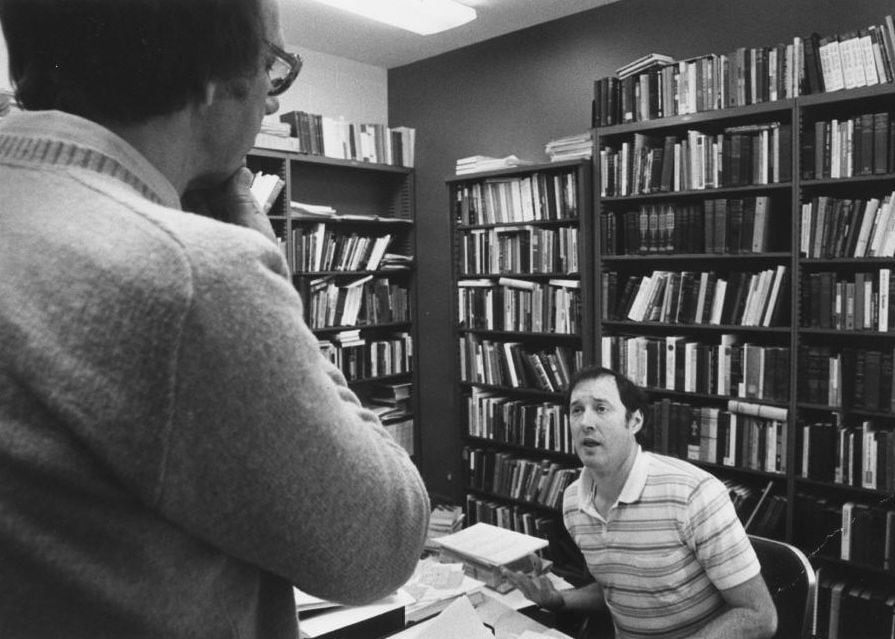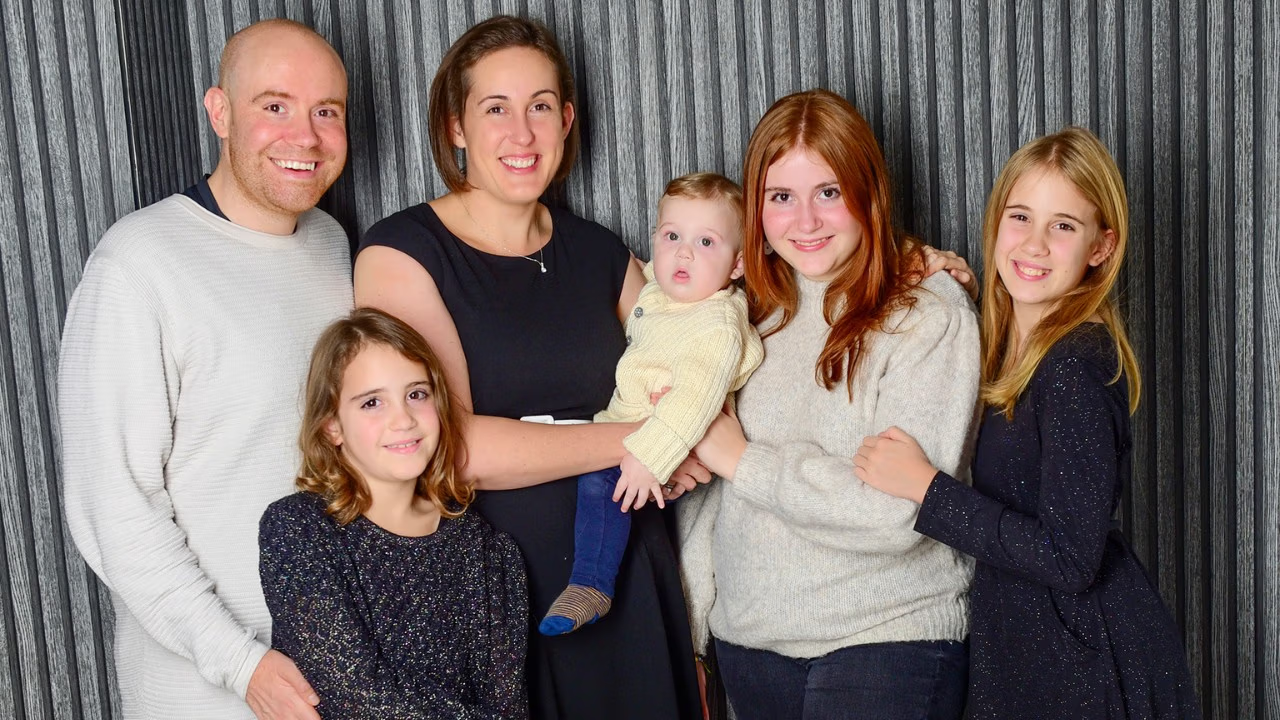For more than four decades, most students’ first class at North Park Theological Seminary has been New Testament 1 with Klyne Snodgrass. “I view my task as helping people bridge from a college degree into the theological world,” Snodgrass says, a few weeks into his 41st and final year full-time at North Park. “We throw them into the deep end of the pool pretty quickly. I want them to be able to be at home in any theological discussion, to take them to a level most of them haven’t even thought about, and to introduce them to a quite technical world of New Testament studies. That’s my job; I’m a bridge person.”
Snodgrass, the Paul W. Brandel Professor of New Testament Studies, has been building bridges throughout the academic world, the global church, and within the North Park community since his arrival in 1974. “I was very young and green,” Snodgrass says, having come to North Park after teaching for only a year at Georgetown College in Kentucky.
“When I came here I knew I was moving to a different level and I had to work very hard,” Snodgrass says. “I was the age of most of the students. It was hard work, but a lot of fun.”
David Kersten, dean of North Park Theological Seminary, is among the long list of church leaders to have studied with Snodgrass over the years. “When he came here, it was North Park College and Theological Seminary, and there weren’t a lot of PhDs across campus. He’s seen the huge trajectory of academic growth within the seminary. He is, in some ways, the anchor to that.”
“There is one thing I learned a long time ago,” Snodgrass says. “When people ask the question, ‘What makes a good teacher?’ The answer is good students. If you have good students, you cannot fail.”
One of Snodgrass’s students, who credits him for “the confidence to go on for a doctorate,” is Rebekah Eklund, assistant professor of theology at Loyola University Maryland. Eklund, along with John E. Phelan Jr., senior professor of theological studies at the seminary, are the co-editors of Doing Theology for the Church, a festschrift written in honor of Snodgrass.

Snodgrass’s publishing career includes his widely regarded Stories with Intent, a pillar in the study of the parables of Jesus. The festschrift is divided into five sections organized around Snodgrass’s major research interests: Gospels and parables; Paul; inner-biblical interpretation; women and ministry; and identity.
“The contributors are colleagues and former students,” Eklund says. “Klyne is one of those rare scholars who is equally admired among serious New Testament scholars and pastors. He has been able to build a bridge between those two worlds.”
A framed cover of the book was presented to Snodgrass at this year’s Symposium on the Theological Interpretation of Scripture, which was held September 25–27 at North Park Theological Seminary.
Snodgrass has coordinated the symposium for years and plans to continue doing so after his retirement. This year’s symposium, “The Human Encounter with God,” discussed among other things “what happens when a person realizes that he or she has encountered God?” Snodgrass says.
“The symposium is an attempt to get academics who are committed to the church to do theology for the church from Scripture,” Snodgrass says. “We try to get academics from various church traditions, including Greek Orthodox, Pentecostal, mainline, evangelical, Roman Catholic, and others. As long as they’re committed to Scripture and the church, they’re our kind of people. We’ve had some knock-down drag-outs, people in heated debates with each other, and sometimes amusingly so. But this is important work.”
Snodgrass has always felt at home among different traditions, especially in his relationship with the Evangelical Covenant Church. He is an ordained minister in the Southern Baptist Convention, but he and his wife, Phyllis, attend a Covenant church, and he adds, “On my résumé, where it says ‘denomination,’ I put ‘Southern Baptist and Covenant.’”
Not only has Snodgrass helped mold multiple generations of Covenant pastors at North Park, he has also been entrusted by the Evangelical Covenant Church to help shape many of the denomination’s positions on theological issues.
“He is one of the most trusted voices and leaders in the denomination, and that’s not an exaggeration,” says Dean Kersten. “He’s written for us on the role of women in ministry, on divorce and remarriage, and one of the most significant papers he wrote for the church was a piece on how we read Scripture. It does more to explain our ethos and how we do faith and do church than maybe any other document.”
Phelan, who himself has taught at North Park for nearly two decades, credits Snodgrass’s lasting influence on the seminary. “Klyne has not only been a superb scholar and teacher, he has been a dear friend and mentor to hundreds of students and scores of faculty. He has had a hand in shaping so many of us that his influence will endure for decades to come.”
In addition to continuing to coordinate the symposium, Snodgrass will teach as an adjunct professor at the seminary beginning in fall 2015. But other than that, the next steps for him and Phyllis are somewhat unclear.
They may spend more time in the South near family, Snodgrass says, admitting he has never been a real fan of the Chicago cold. “I will keep doing the kinds of things I do: writing and teaching,” Snodgrass says. “I’m a teacher. It’s who I am. But nobody tells you how to do this retirement thing. So you’ve got to figure out how God is leading you at this point in your life. You’ve got to ask again, ‘Who am I going to be?’”
(Editor’s note: a slightly different version of this article previously was published on the North Park University website.)














